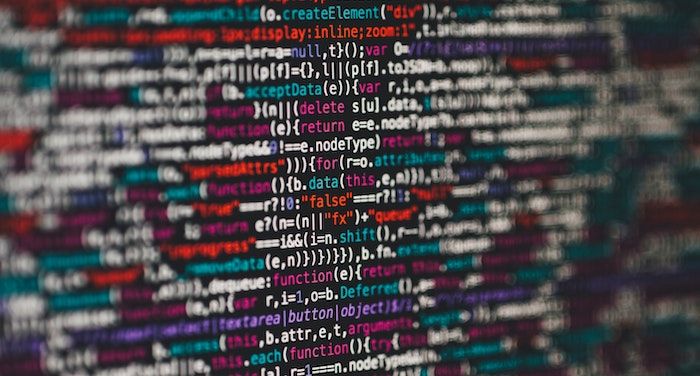
12 Best Machine Learning Books For Beginners
New Year, New You, New…Skill? If you’re looking to expanding your work beyond basic programming, it might be a great tome to dip into machine learning. Machine learning is the use of existing data to explain unknown data and predict future scenarios. It is also an integral part of technology and tech-related fields. If you’re looking to pick up a useful skill or expand your tech prowess, learning about machine learning may broaden your career possibilities. With that in mind, we’ve crafted a list of the best machine learning books for beginners to get you started.
For this article, I consulted Dr. David Dittman, who has a PhD in Computer Science with a focus on machine learning applications and biology (1). He also teaches data analytics, data visualization, and machine learning, and therefore we are picking books with an instructional component.
Machine learning is done through computers, so some knowledge of programming may be required. The most common programming languages are R and Python. If you’d like to learn more about basic programming and languages, check out our article on 21 Computer Science Books (2).
A Note On Cost And Diversity
Due to the fact that most instruction on machine learning still happens in an academic environment, many essential books are textbooks. Textbooks do tend to be more costly. Though not all of the books picked are textbooks, they can still come with an above-average cost. A few free learning resources are included at the end to help balance this out.
Additionally, as with any tech field, many of the resources lack diverse authorship. There are a few authors of color on this list, but the dearth of publications by authors of color is still notable. If you would like to know more about the need for diversity in tech, please check out this article.
Introduction To Machine Learning Texts
The following books give a general overview on what machine learning is, how it can be applied, and early examples on how to perform it. These are excellent machine learning books for beginners or those with some experience. However, they may not give you in-depth skill on the subject. After that, we have included some field-specific books in Finance, Life Sciences, and Cyber Security.
Machine Learning For Absolute Beginners: A Plain English Introduction by Oliver Theobald
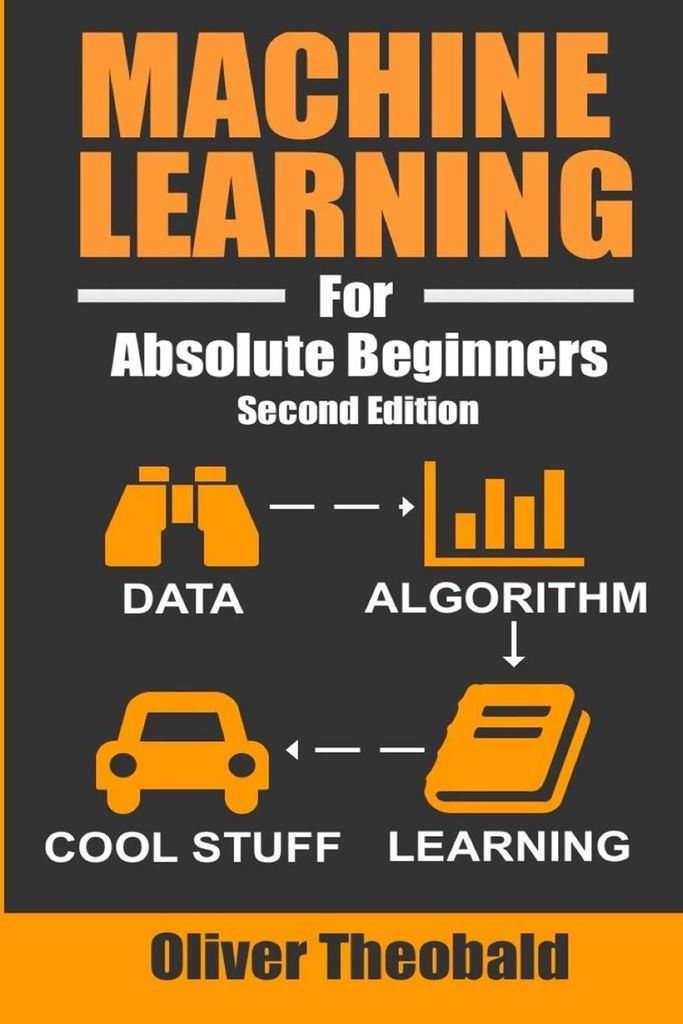
This aptly titled text will give you the very basic building blocks of machine learning. This includes what it is and how it’s used, all without requiring math or programming background. As one of the least expensive books on the list, if you’re just considering learning about or looking into machine learning, this might be the right text for you.
The Hundred Page Machine Learning Book by Andriy Burkov
Burkov’s book comes with a stamp of approval from Peter Norvig, the director of research at Google, and Sujeet Varakhedi, the head of engineering at eBay. At only 100 pages, it is a short, concise, quick read on the basic concepts of algorithm implementation. You will likely be using existing algorithms in machine learning, but it is important to understand their anatomy and function.
Introduction to Machine Learning with Python: A Guide for Data Scientists by Andreas C. Müller and Sarah Guido
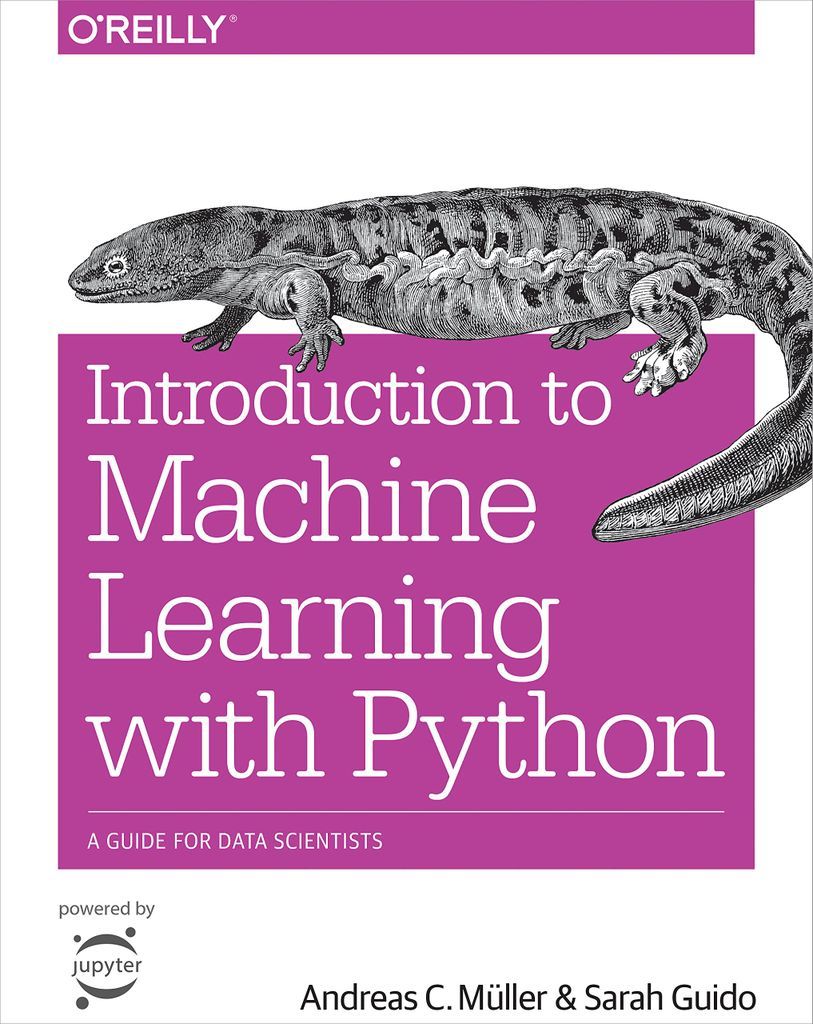
This book is an excellent primer with practical examples if you are versed Python programming. You’ll be reviewing the concepts of machine learning but also be able to use the related Python libraries to begin implementing your own machine learning techniques. Introduction to Machine Learning has application use for a number of different fields and may be the best beginner machine learning book for those with programming experience.
Machine Learning for Hackers: Case Studies and Algorithms to Get You Started by by Drew Conway and John Myles White
Conway and White’s book does require prior R programming knowledge. It also comes with a number of real-world case studies that can allow a machine learning student to learn real-world effects use of algorithms. Interestingly enough, neither Conway nor White are solely computer scientists. Conway is a political scientist and White is a psychologist. Both work to show how machine learning can be utilized in a variety of settings. This is unsurprising as R is a popular data analyst suite outside of traditional computer-science fields.
Natural Language Processing with Python: Analyzing Text with the Natural Language Toolkit by Steven Bird, Ewan Klein, Edward Loper
Depending on the field and project, people utilizing machine learning will have to contend with either structured or unstructured data. Structured data is data that is presented in the same consistent format. For example, dates all presented as MM/DD/YYYY or hours denoted as military time are structured data. In most other projects, the data will not be as conveniently put together. In comes Natural Language Processing, which is how computers read free text, or unstructured data. This book uses the existing, open source, natural language toolkit, which is a library for Python that will be essential for most machine learning processes. This is why, if you’re a Python user, this book needs to be on your machine learning reading list.
Finance
The following books cover the basics on applications of machine learning in financial industries.
Machine Learning and Data Science Blueprints for Finance by Hariom Tatsat, Sahil Puri, and Brad Lookabaugh
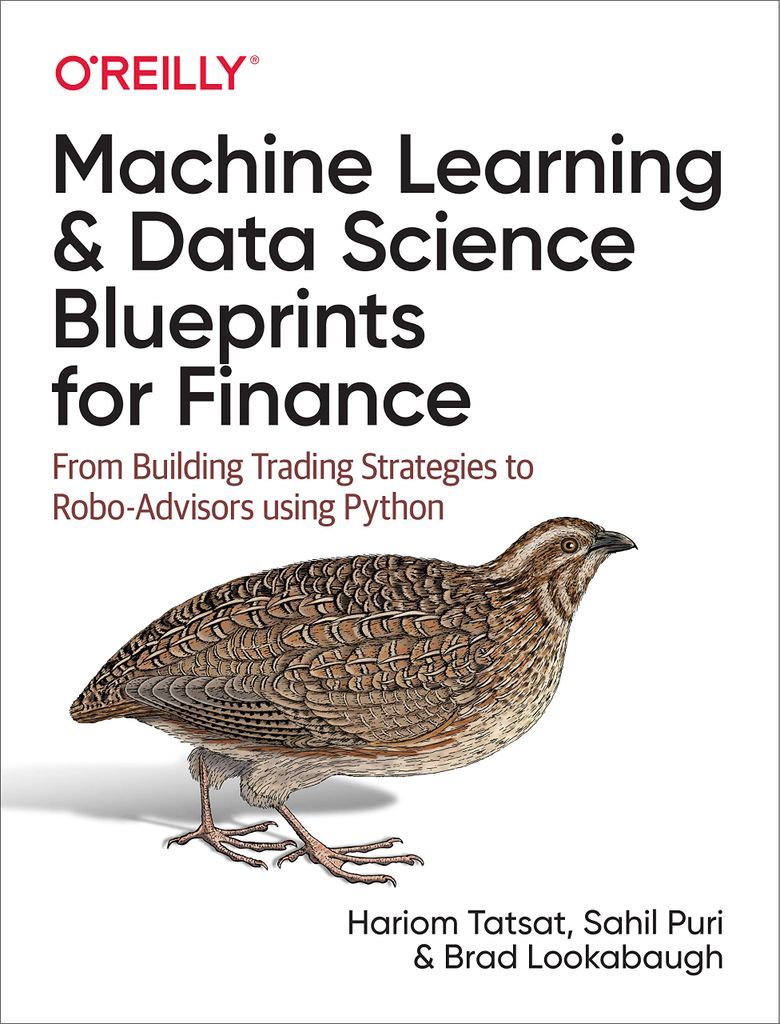
Financing has several applications for machine learning processes. These include the growing robo-investing and robo-advising industries. This book is really geared towards people involved in finance who want to to get more involved in the quantitative side of things. The book comes with a free (with purchase) downloadable code base to run a diverse set of projects. These projects include fraud detection, portfolio management, and the aforementioned robo-advising.
Machine Learning for Algorithmic Trading by Stefan Jansen
This work is intended for those already involved in finance, but it offers a resource for people within that field to begin learning about machine learning. The programs in the book are applicable to a variety of investment categories and asset classes, with a focus on prediction and decision-making. The book hopes to show how machine learning techniques can increase returns on investment. Large firms such as Charles Schwab have been implementing more machine learning and robo-investing into their services. Machine learning knowledge can greatly benefit financial advisors, fiduciaries, financial planner, and investors to better manage their assets.
Life Sciences
Any field involving biological material and living organisms and their functions is considered a life science. These fields also generate an enormous amount of data, meaning that computer science is essential for analysis. From pharmacology to genomics to electronic medical data and more, all rely on computer analysis and data processing to function. As you can expect, there are a large array and specializations that use machine learning techniques. We picked texts that give the basics that can be applied to a breadth of fields and specializations.
Deep Learning for the Life Sciences by Bharath Ramsundar, Peter Eastman, Patrick Walters, Vijay Pande
Deep Learning is a good introduction for why machine learning is highly utilized in a large array of life science applications. Though this text is less about technique and application, it helps students of machine learning answer the “why” questions and showing where it’s used. It’s a good survey for those with little programming experience but want to explore this field.
Bioinformatics with Python Cookbook: by Tiago Antao
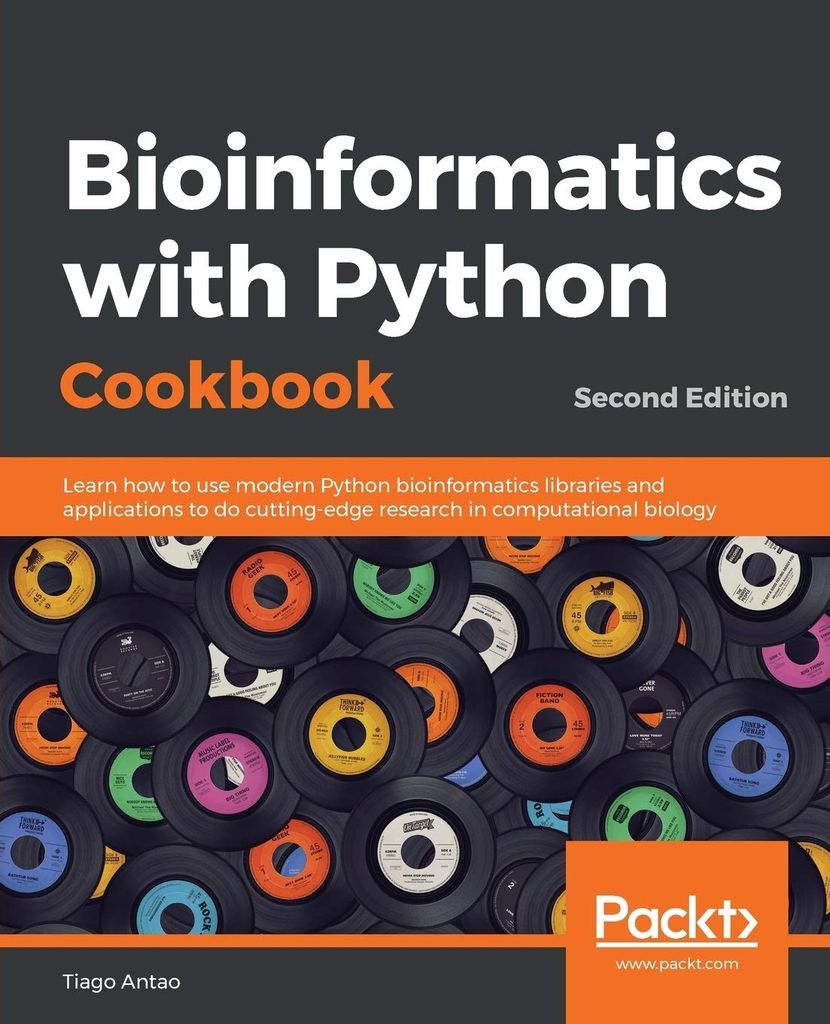
Like a real “cookbook,” computer science cookbooks give step-by-step recipes for use. Bioinformatics with Python uses the Python resources to show how to perform data analysis and working with large scale genomics data. Applications in this book include population genetics simulations, genomics data analysis (including commonly used formats), and proteomics (proteins) data. As the title suggests, knowledge of and experience in Python is preferred.
R Bioinformatics Cookbook by Dan MacLean
Similar to the Bioinformatics with Python, the R Bioinformatics Cookbook also gives recipes for running data through machine learning. This time through R language rather than Python. Likewise, both books are good investments, as they can remain referential for their code and programs long after someone has started programming for themselves.
Cyber Security
Given the recent mass government hacking by a foreign entity and numerous breeches in the private sector, it’s clear that having a working knowledge of cyber security may become something most of us will have to familiarize ourselves with. We picked texts that a both applicable to personal security and industry specializations in this section.
Computer Programming And Cyber Security for Beginners by Zach Codings
Cyber security is a very large and growing industry, with its own dynamic set of programming applications. Computer Programming and Cyber Security is not a book solely about machine learning, it is also a great primer in security implementation and ethical hacking. The inclusion of SQL means it will include discussions of database-based languages. The text comes at cyber security from a number of angles which helps future programmers understand the various applications of machine learning and general programming.
Hands-On Machine Learning for Cybersecurity by Soma Halder and Sinan Ozdemir
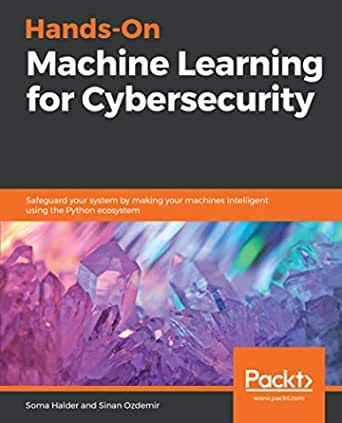
Unlike the previous text, Hands-On is primarily a machine learning book, with a focus on machine learning techniques, automating tasks, and malicious activity detection. It is primarily Python, as the title suggests, but it is also much more-industry focused than the previous work.
Free and Additional Resources
If you’re looking to seriously get involved in computer science, we highly suggest reading up on ethical use and application. You can find a few recommended books in this article that go over ethical concerns that are relevant to machine learning.
Many specific machine learning techniques are available open source online. If you’re using a search engine, it’s best to format your query as “how to do [technique] in [programming language].” For example, “how to do k nearest neighbors in Python” (3). Colleges and universities typically provide open-source single-technique lessons in text form.
Coursera, though not free, does offer classes in machine learning without having to be a part of an academic institution to get access to the information. Data camp has some free and paid classes, which are specifically focused on building data skills. It also has good, short tutorials, including tutorials on how to do specific techniques in R. It’s also free for educators. Students should also be able to get free access.
We, the authors, implore you to explore a multitude of resources when it comes to machine learning. Not just our list of the best machine learning books, but programming forums and self-learning tutorials. This field is always expanding, and it is necessary to get into the habit of refreshing your knowledge and life-long learning. After all, you’re the best machine learning machine.
- For full disclosure, Dr. David Dittman is my husband, so it’s not like he had a choice in helping write this article.
- Unfortunately, we did not include any books on R in the previous article, but did include a beginner’s text on Python.
- K Nearest Neighbors is a machine learning technique that infers things about a data set by its most similar instances.











